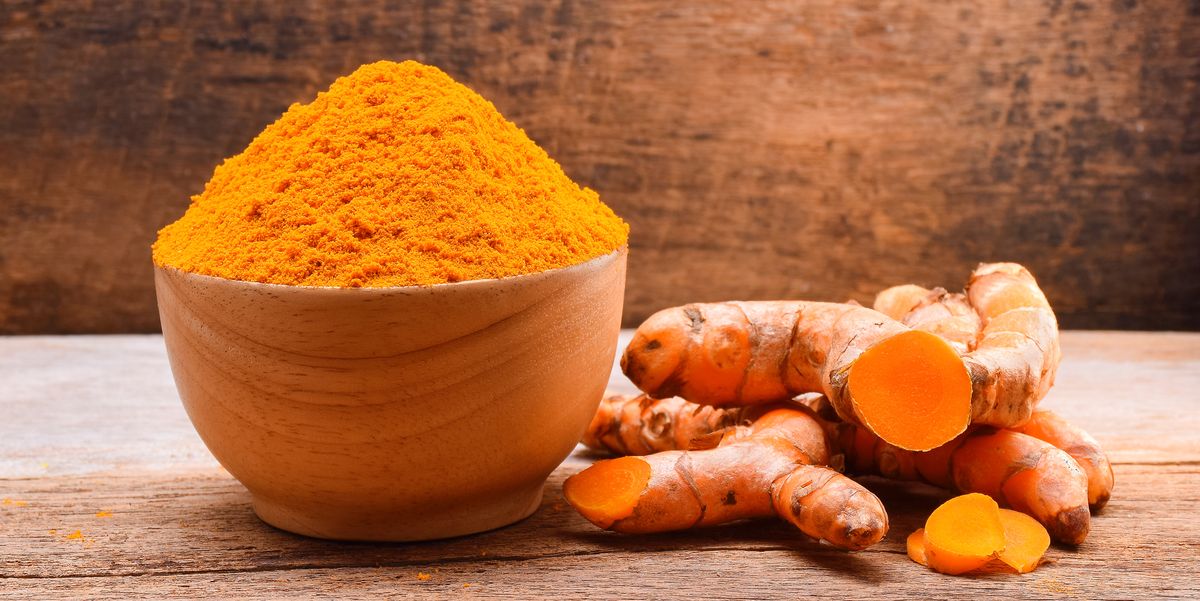Turmeric (Curcuma longa), like many other spices, has a long history of usage in traditional medicine. Apart from giving curry its vivid yellow color, turmeric is known for having potent anti-inflammatory and antioxidant properties, according to a prior review. This flavorful spice is primarily grown from the rhizomes, or roots, of a flowering plant that grows in India and other parts of Southeast Asia.
Curcumin, which gives turmeric its distinctive yellow color, is the main active ingredient in the spice. In fact, the majority of turmeric’s purported health advantages can be attributed to curcumin.
The top 14 scientifically proven health advantages of turmeric and curcumin are listed below.
1. Turmeric contains Bioactive Substances with Therapeutic Effects
However turmeric doesn’t have a lot of curcumin in it. It’s about 3% of the weight. The majority of studies on this herb use turmeric extracts, which mostly consist of curcumin itself, at concentrations that typically surpass 1 gram per day.
Using turmeric as a food spice alone wouldn’t be enough to get you to these levels. This is the reason some people decide to use supplements.
However, your bloodstream only absorbs a small amount of curcumin. Curcumin has to have better bioavailability (the rate at which your body absorbs a chemical) in order to have its full effects felt.
It benefits from being consumed with black pepper, which has piperine. Curcumin’s absorption is increased by 2,000% by the natural chemical piperine. In actuality, piperine is present in the greatest curcumin pills, which significantly increases their potency. Additionally fat soluble, curcumin disintegrates and dissolves in fat or oil. Therefore, it can be wise to take curcumin pills along with a meal that has a lot of fat.
2. Curcumin Is an Anti-Inflammatory
One of the main benefits of turmeric is that it is frequently used to reduce inflammation, and curcumin is primarily responsible for this property. According to a previous study, curcumin may even be more potent at the proper dosage than aspirin and Advil (ibuprofen), which are frequently used to treat inflammation. Although, more study is required in this area.
According to another review, curcumin may aid in the treatment of disorders like inflammatory bowel disease, pancreatitis, and arthritis because chronic inflammation is a factor in many chronic diseases. Scientists now think that certain diseases and health issues may be influenced by chronic low-level inflammation. These consist of: cancer, heart disease, Alzheimer’s illness and metabolic syndrome.
3. Turmeric can increase the Antioxidant Capacity of the Body
One of the mechanisms thought to be responsible for aging and many diseases is oxidative damage. Free radicals, extremely reactive molecules with unpaired electrons, are involved. Important chemical molecules like fatty acids, proteins, or DNA often react with free radicals.
Antioxidants are mostly helpful because they shield your body from free radicals. Due to the chemical makeup of curcumin, it is a powerful antioxidant capable of scavenging free radicals
Additionally, research on animals and cells indicate that curcumin may inhibit the activity of free radicals and maybe promote the activity of other antioxidants. To substantiate these advantages, additional human clinical research are required.
4. Curcumin Might Aid in Heart Disease Prevention
Curcumin may enhance endothelial function, or the health of the thin membrane that lines the interior of the heart and blood arteries, according to an earlier study. This membrane is essential for controlling blood pressure. Aging and a higher risk of heart disease are linked to decreased endothelial function. Consequently, curcumin may assist in preventing age-related loss of function and lower your risk of acquiring heart disease.
A study found that curcumin was just as effective as the drug Lipitor (atorvastatin), which is frequently prescribed to lower the risk of heart attack and stroke, at improving endothelial function in people with type 2 diabetes. Curcumin may be a safe and effective long-term therapeutic option for people with heart disease, but additional research is still required to make that determination.
5. Curcumin can boost Brain-derived Neurotrophic Factor
Before scientists had a better grasp of neurons, it was thought that during early life, neurons were unable to divide and multiply. They now understand that’s not the case, though. In some parts of the brain, neurons can grow and become more numerous. They are also capable of creating new connections.
Brain-derived neurotrophic factor (BDNF) is one of the key initiators of this process. This gene contributes to the production of a protein essential for maintaining the health of neurons. The brain regions in charge of eating, drinking, and body weight contain the BDNF protein, which has an impact on memory and learning.
Decreased BDNF protein levels have been linked to depression and Alzheimer’s disease, among other widespread brain illnesses. Curiously, investigations on animals have revealed that curcumin may raise BDNF levels in the brain.
As a result, many brain disorders and age-related declines in brain function may be effectively delayed or even reversed. However, since these experiments were carried only on animals, it is difficult to interpret what the findings signify for people. Given how it affects BDNF levels, it may also aid with memory and attention. More research is necessary to support this, though.
6. Curcumin May Help Prevent (and Possibly Treat) Certain Types of Cancer
Anti-inflammatory substances like curcumin may aid in the treatment and prevention of a number of cancer types, including colorectal, pancreatic, prostate, breast, and gastric cancers, as inflammation is connected to the growth of tumors.
Curcumin may help limit the growth of tumor cells and may even stop them from forming altogether, according to research in mice. It may accomplish this in a number of ways, such as by obstructing the development of malignant cells at different phases of the cell cycle, obstructing cell signaling pathways, or even by inducing the death of those cancerous cells. Curcumin’s potential to treat cancer in people is still being investigated, though.
7. Curcumin may be useful in treating Alzheimer’s Disease
The most prevalent type of dementia, Alzheimer’s disease may be to blame for up to 70% of dementia cases. Although there are treatments available for some of its symptoms, Alzheimer’s disease is still incurable. It is of the utmost importance to stop it from happening in the first place because of this.
Curcumin has been demonstrated to pass the blood-brain barrier, therefore there may be good news on the future. Curcumin has advantageous effects on both inflammation and oxidative damage, which are known to contribute to Alzheimer’s disease.
Additionally, a buildup of protein tangles known as amyloid plaques is a key component of Alzheimer’s disease. According to studies, curcumin can assist in removing these plaques. Curcumin’s potential to reduce or perhaps stop the progression of Alzheimer’s disease in people has to be further investigated.

8. Curcumin Might Reduce Osteoarthritis Symptoms
Curcumin may be a secure and efficient long-term therapeutic choice for persons with osteoarthritis (OA) because of its strong anti-inflammatory characteristics. The authors of a recent study of the clinical usage of curcumin for the treatment of osteoarthritis came to that conclusion, at least. As a part of the Advances in Experimental Medicine and Biology book series, the review was initially posted online in August 2021.
In a previous trial, participants with osteoarthritis who took 1,000 mg of Meriva daily after eight months saw a significant reduction in stiffness and improvements in physical performance, whereas the control group showed no improvement. A natural curcuminoid mixture (consisting of 75% curcumin, 15% demethoxycurcumin, and 10% bisdemethoxycurcumin), phosphatidylcholine (a substance found in eggs, soybeans, and other foods), and microcrystalline cellulose (a refined wood pulp frequently used by the pharmaceutical and food industries) are the main ingredients in the proprietary treatment Meriva.
9. Turmeric Could Benefit Skin Health
Turmeric may be a helpful treatment for a number of skin diseases, including acne, eczema (atopic dermatitis), photoaging, and psoriasis, because of its anti-inflammatory, antibacterial, and antioxidant qualities. Strong research is, however still required.
Oral curcumin, in particular, may be an efficient and secure therapeutic option for psoriasis (a chronic inflammatory skin condition), according to a review published in the January 2018 issue of Open Access Macedonian Journal of Medical Sciences, but further research is required before doctors can recommend it.

Topical curcumin treatments may be helpful in treating skin conditions, according to the authors of another analysis, particularly given that prior research indicates curcumin is generally safe even at large doses. However, curcumin’s vivid orange-yellow hue, poor solubility, and weak stability at a high pH make it an unappealing topical skin treatment.
10. Curcumin has Antidepressant Properties
Curcumin has shown some promise in treating depression. 60 depressed individuals were randomly assigned to one of three groups in a controlled experiment. Prozac was given to one group, 1 gram of curcumin to another, and Prozac with curcumin to the third.
Curcumin had produced results comparable to those of Prozac after six weeks. The group who consumed curcumin as well as Prozac fared the best. This short study found that curcumin has comparable antidepressant efficacy.
A brain region involved in learning and memory, the hippocampus, as well as lower BDNF levels are associated with depression. By raising BDNF levels, curcumin may be able to slow or stop some of these alterations. Additionally, there is some proof that curcumin can boost the brain neurotransmitters serotonin and dopamine.
11. Curcumin May Help Treat or Prevent Diabetes
Curcumin may aid in the treatment and prevention of diabetes, as well as the accompanying conditions such diabetic nephropathy (also known as diabetic kidney disease), which affects both patients with type 1 and type 2 diabetes. One negative was that many of the experiments were conducted on animals rather than people.
For instance, one study discovered that 45 days of feeding rats with type 2 diabetes 80 mg of tetrahydrocurcumin (one of the primary components in curcumin) per kg of body weight resulted in a considerable reduction in blood sugar as well as an increase in plasma insulin.
In the July 2019 edition of Nutrition & Metabolism, a study of obese mice with type 2 diabetes revealed that curcumin supplements helped lower blood insulin levels after 16 weeks.
12. Curcumin May Play a Role in Treating Rheumatoid Arthritis
Rheumatoid arthritis (RA) is a chronic inflammatory disease that typically affects the joints but can also affect the eyes, lungs, skin, heart, and blood vessels. Curcumin has shown promise as a treatment for RA. RA results in a painful swelling of the joints, which over time may destroy the bones and result in deformities and physical impairments.
In one trial, patients with RA received either 500 mg of curcumin, 50 mg of the prescription NSAID diclofenac sodium, or a combination of the two. When compared to the other two groups, the curcumin-only group experienced significant reductions in joint discomfort and swelling after eight weeks. The use of curcumin was likewise safe, according to researchers; no negative effects were experienced.
According to the authors of an article that appeared in September 2019 in Nutrients, curcumin’s limited bioavailability makes it likely that you would need to take it to supplement, rather than replace, existing skin therapies.
13. Curcumin Might Prevent Eye Degeneration
One of the main causes of blindness in persons over the age of 60 is a series of eye disorders known as glaucoma. Sadly, once your vision is lost, it cannot be recovered.
However, preliminary evidence suggests topical curcumin therapies may aid in preventing macular degeneration. This research was published in Scientific Reports in July 2018. Rats were given two drops of a customized curcumin eye treatment daily for three weeks by researchers. By the end of the trial, the untreated rats had 23 percent fewer retinal cells than the treatment group, indicating that the curcumin treatment had stopped the loss. The study’s findings are intriguing, but additional research is required to understand whether curcumin may stop human eye degeneration.
14. Turmeric Could Be a Beneficial Supplement for Aging
The ability of turmeric and curcumin to combat inflammation, shield your body from free radicals, and possibly postpone brain degeneration and other age-related diseases makes them potential anti-aging supplements, even though there is currently no proof that they directly affect longevity.
Although certain unfavorable side effects (diarrhea, headaches, and rashes) have been recorded at doses ranging from 500 to 12,000 mg, studies also indicate that turmeric and curcumin are generally safe.
Conclusion
Numerous health benefits of turmeric have been scientifically demonstrated, including the ability to protect against Alzheimer’s disease and cancer. Its most active component, curcumin, also has the potential to boost heart health.
It works well as an antioxidant and anti-inflammatory. Additionally, it might lessen arthritis and depression symptoms.
These advantages might exist, but they are currently constrained due to curcumin’s low bioavailability, necessitating additional investigation.
